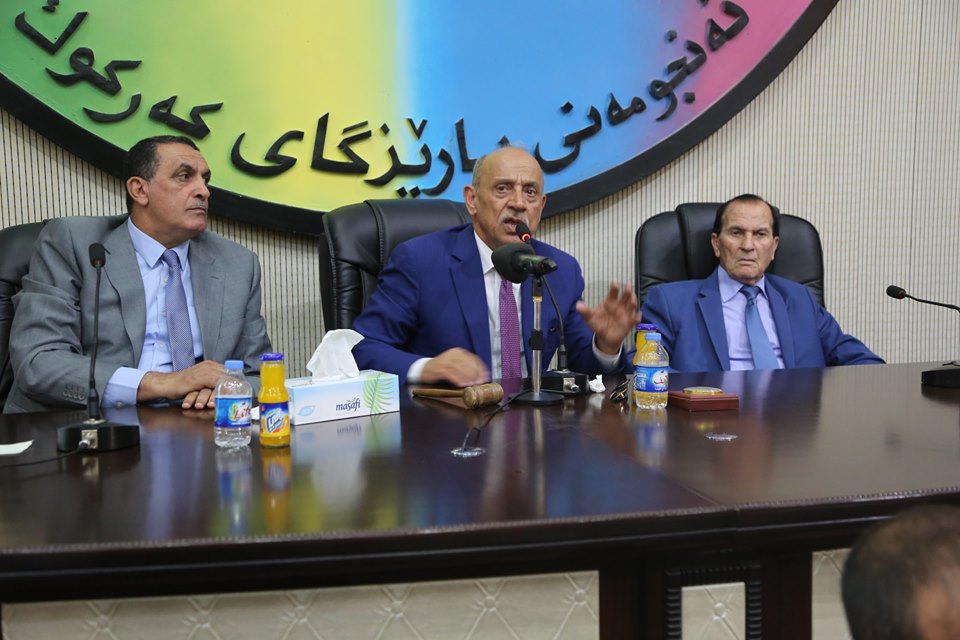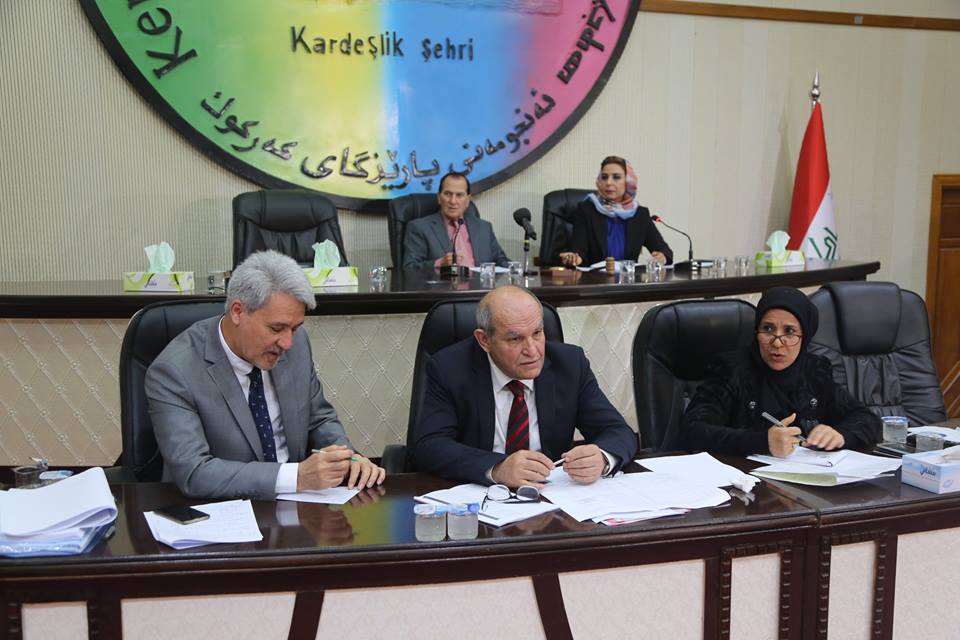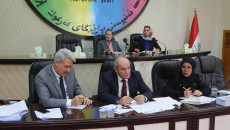Acting governor of Kirkuk assigns an aid to share the administrative positions in Kirkuk provincial council among Arab, Kurd and Turkmen components of Kirkuk equally and 4% for the Christians, a project then proposed by late former Iraqi president in 2009 yet now opposed by the Kurds in Kirkuk.
On July 28, 2009, components of Kirkuk provincial council, currently dissolved by an order of Iraqi parliament in 2019 upon demands of protestors then, made a deal to about administrative positions in Kirkuk.
Arabs, Kurds and Turkmens each were entitled to receive 32% and the rest for the Christians of Kirkuk, based on a proposal by Jalal Talabani, late Iraqi president and secretary of the leading Kurdish party, Patriotic Union of Kurdistan PUK, with headquarters in Sulaimaniyah Northern province.
The agreement outlined Kurds to take position of Kirkuk governor, Turkmen to preside the provincial council and Arabs as deputy. The agreement was implemented on the ground for those senior positions yet not covered lower positions.
12 years following the agreement, the status quo acting governor of Kirkuk Rakan al-Jiburi in a letter addressed to his assistant Ali Hamadi, asks to share the administrative positions in Kirkuk provincial council per 2009 agreement yet the Kurds oppose the attempt.
There are 20 key positions in Kirkuk provincial council and the governor aims to share it per 2009 agreement, a source in the media of Kirkuk provincial council anonymously told KirkukNow.

Acting governor of Kirkuk rakan al-Jibouri, in a meeting of the provincial council in July 2019. Photo by KirkukNow.
Kurds in Kirkuk, whom supported the proposal in 2009, now disagree with the governor and halted the changes in Baghdad.
Jamal Shukur, a Kurdish member of Iraqi parliament from Kirkuk, said Iraq's Supreme Federal Court might revoke Iraqi parliament's order reinstall the provincial councils. "We have not confirmed such a move because it is threatening."
"We have not confirmed such a move because it is threatening."
Jiwan Hussein, member of dissolved provincial council said in fear of federal court's ruling in favor of provincial council, "Rakan Said wants to have more power in those vital admin positions and make it materialize ahead of any decision by putting in office people loyal to him."
The oil rich city of Kirkuk, Iraq's second largest oil reserves, is ethnically a mixed province of Kurds, Sunni and Shiite Arabs, and Turkmen. It has long been at the center of disputes between the federal government in Baghdad and the autonomous Kurdistan Regional Government KRG.
Kirkuk, 238 kilometers north of Baghdad, is located in a disputed area of Iraq that runs from Shingal on the Syrian border southeast to Khanaqin and Mandali on the Iranian border.
The Kurds has been ruling Kirkuk following the toppling of Saddam Hussein regime in 2003 up to 2017. They wanted Kirkuk to become part of the Kurdistan region and launched a referendum in September 2017 but the move has been opposed by the Arab and Turkmen populations. The referendum by the Kurds triggered Iraqi authorities to retake control over disputed territories after claiming victory over the so-called Islamic State ISIS end of 2017.
Iraqi federal court is to convene on upcoming April 19 to determine the destiny of provincial councils dissolved all over Iraq excluding Kurdistan region.
Currently Kurds are occupying most of the positions that acting governor wants to share with Arabs and Turkmen. According to acting governor plan, an Arab replaced the governor, a Kurd, since 2017, Arabs can fill the positions of secretary of the council, director of technical and computer department, office of committees and office of council head deputy.
Turkmen to take nominate staff for secretary of council head deputy, director for departments of administration, law, planning and follow-up and media. The remaining positions for the Kurds are director of council head office, auditing department, logistics, affairs of the public and service department.






